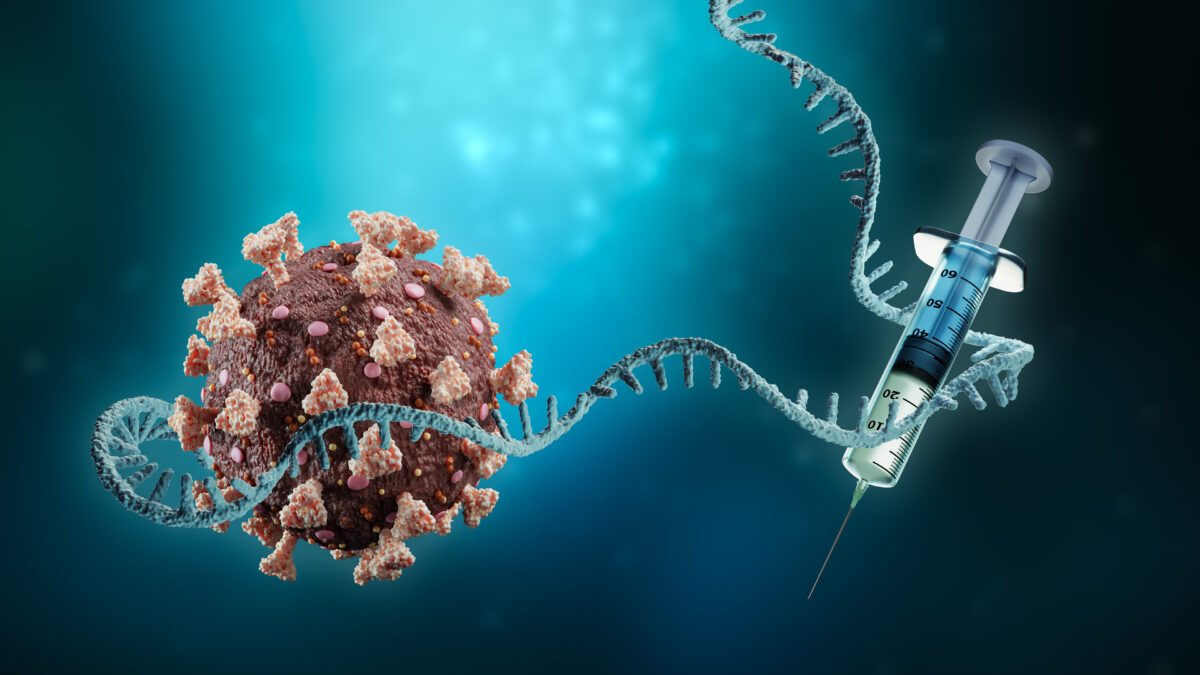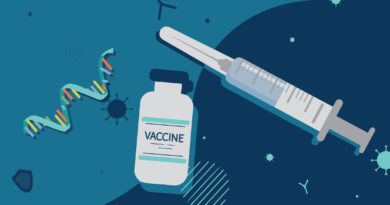Vaccine-Injured and Boosted Have Weaker, Overworked Immune Systems

In January 2022, Marco Cavaleri, Head of Vaccines Strategy at the European Medicines Agency raised concerns about frequent COVID-19 booster shots, as these vaccines can potentially overload people’s immune systems and tire them out, eventually weakening their immune responses.
One month later, in February 2022, a Swedish total population cohort study was published in The Lancet. According to this study, the immunity of people who had received two doses of COVID-19 vaccines declined over time, and after eight months, their immune function against the virus was even lower than that of the unvaccinated individuals.
According to a recent article published in Virology Journal, the possible causes of decreased immunity among the vaccinated population include the following:
- N1-methylpseudouridine: Two widely used vaccine platforms were developed based on mRNA technology by Pfizer and Moderna. Both vaccines use N1-methylpseudouridine in their genetic code, and are delivered with a lipid nanoparticle (LNP) formulation. After vaccination, the mRNA enters the cells and produces spike proteins by using materials from the cells. The spike proteins are supposed to trigger an immune response, which produces neutralizing antibodies to prevent the body from being infected by the SARS-CoV-2 virus. However, it has been discovered that the replacement of uracil with this pseudouridine in the genetic code can suppress this immune response mechanism, and N1-methylpseudouridine has been observed to diminish the activity of innate immune sensors.
- Spike proteins: After inoculation with mRNA vaccines, instead of immediately decaying, the spike proteins remain in the body for over four months. According to a study published in the journal Neurobiology of Disease and subsequent studies, spike proteins can trigger a pro-inflammatory response on brain endothelial cells, which form the blood-brain barrier, and damage vascular endothelial cells, which are also conditional innate immune cells. As a result, spike proteins can damage the immune system.
- Lipid nanoparticles (LNPs): According to a study published in the journal Cell Press, LNPs are highly inflammatory. In the study, intradermal and intramuscular injections of LNPs led to the production of inflammatory cytokines and chemokines in lab rats. And when LNPs were delivered by intranasal injections, besides similar robust inflammatory responses, cases of sickness and death were also observed in lab rats, with the underlying mechanism currently remaining unresolved. According to Pfizer’s own study, after vaccination, LNPs can become distributed and accumulate in different organs, including the liver, spleen, and adrenal glands.
- Antibody-dependent enhancement: Antibody-dependent enhancement (ADE) occurs when antibodies generated during an immune response after viral infection or vaccination help a pathogen get into cells, thus assisting the virus to infect a larger number of cells than it would have on its own. Usually, ADE results in more severe illness in a patient than if the individual had never been vaccinated. Therefore, when ADE takes place, the body’s innate immune responses will be changed and cells’ antiviral responses inhibited.
- Original antigenic stimulus: It’s also called the original antigenic sin (OAS) and is the immune memory of a previous exposure to an antigen, preventing a vaccine from being effective against a related antigen. Therefore, the immunity against antigens similar to the previous one has been decreased due to OAS, instead of being increased.
Therefore, due to the above reasons, people who have received the COVID-19 vaccines may end up with a fatigued and weaker immune system.
However, there are measures that can prevent a decline in immune function, including:
1) Discontinuation of booster shots: This is the most direct and effective way to avoid COVID-19 vaccines’ adverse effects on immunity.
2) Limiting the use of non-steroidal anti-inflammatory drugs (NSAIDs). These drugs can relieve pain, reduce inflammation, and lower a patient’s high body temperature. However, fever is actually a common mechanism for our body to fight infectious disease, and it achieves this in two ways. First, a high body temperature speeds up the cells’ operations, including the ones that fight the disease. Second, a high body temperature can make it difficult for viruses to survive. For instance, a body temperature between 40°C and 41°C can reduce the replication rate of poliovirus by 200-fold. Therefore, a fever actually boosts the body’s immune function. So, to not reduce the body’s immune function, we should limit the use of NSAIDs in lowering body temperature. Other methods can be employed to lower a high body temperature, including drinking plenty of cool water and putting a damp towel on the forehead.
3) Proper use of antibiotics: Trillions of beneficial bacteria live in our gastrointestinal tract, respiratory tract, and mouth, as well as on our skin. When taking antibiotics, they are being wiped out along with the “bad” bacteria that the antibiotics intend to eliminate. A reduction in the number of beneficial bacteria may weaken our immune system, causing viral invasion and replication. Therefore, we should take caution and care when taking antibiotics, to avoid a decline in immunity.
4) Quitting smoking: Smoking weakens our body’s immunity in multiple ways. There’s growing evidence that cigarette smoking causes abnormalities in innate immune responses, although scientists are still trying to figure out the underlying mechanisms. Also, the many hazardous chemicals contained in cigarettes, including 70 known cancer-causing ones, negatively affect adaptive immune cells, and cause oxidative stress, DNA damage, and inflammation. Smoking reduces the levels of protective antioxidants in the bloodstream, including vitamin C levels, which is important for the proper functioning of the immune system. Therefore, smoking negatively impacts both innate and adaptive immune systems, making smokers immunocompromised. According to the World Health Organization (WHO), smokers are more likely to develop severe illness and pass away due to COVID-19 infection than people who have never smoked. This is because cigarette smokers already have their immunity and lung function compromised by smoking. However, a good thing to know is that once you quit smoking, your immunity will start to rebound.
5) Controlling stress: According to a meta-analytic study, stress suppresses and diminishes both innate and adaptive immune functions. And acute stressors (e.g. severe sadness and worry) can reduce immunity after as short a period as one hour. Short-term suppression of the immune system is not dangerous, but chronic suppression of immunity can make the body vulnerable to infection. White blood cells are one of the main immune cells, and chronic stress can cause prolonged secretion of cortisol, which can lower the number of white blood cells and also make these cells downregulate their cortisol receptors, reducing their ability to respond to anti-inflammatory signals. Furthermore, stress can affect our immunity by raising blood pressure. Therefore, we should manage our stress level and mood, in order to not weaken our immunity.
6) Getting sufficient amounts of sleep: Sleep also plays a critical role in our immune system. During sleep, our body produces T-cells (a type of white blood cells) and different types of proteins that can help the immune system and fight infection. For instance, one type of these proteins is antibodies, which can identify and neutralize pathogenic bacteria and viruses; and another type is cytokines, which are important proteins that host immune responses to infection, inflammation, cancer, and reproduction. Therefore, acquiring an insufficient amount of sleep can reduce the body’s production of many infection-fighting cells and proteins, thus weakening our immunity.
7) Consuming food that can boost your immunity: Vitamin C can help the body produce white blood cells. Foods that are rich in vitamin C include citrus fruits, bell peppers, tomatoes, cruciferous vegetables, and white potatoes. Due to its concentration of sulfur-containing compounds, garlic also has excellent immune-boosting properties. Other fruits and vegetables that contain zinc, beta-carotene, vitamins A, C ,and E, as well as other nutrients are also exemplary foods to boost immunity.
8) Avoiding high-fat diets: Oils can impede the function of lymphocytes. So a diet high in fat can impair white blood cells. Also the consumption of high-fat diets over the long term can disrupt the balance of gut microbiota, which help with certain immune responses. Therefore, to avoid a decline in immune function, one should not adopt a diet high in fat.
9) Restricting alcohol consumption: Alcohol disrupts the human body’s immune pathways. And chronic high-risk alcohol use can weaken the lungs’ immune responses and increase the risk of respiratory illnesses. Alcohol consumption over a long period of time can also reduce the body’s self-repair function.
10) Limiting the use of immunosuppressants: These are medications that can weaken our immune system. Such drugs include mycophenolate mofetil, monoclonal antibodies, anti-TNF (tumor necrosis factor) drugs, and methotrexate.
This article has been archived for your research. The original version from Epoch Times can be found here.


